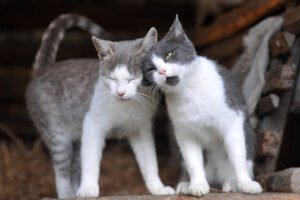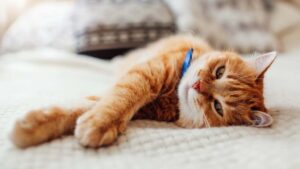7 Reasons Why Your Cat Meows While Eating and How to Deal with Them
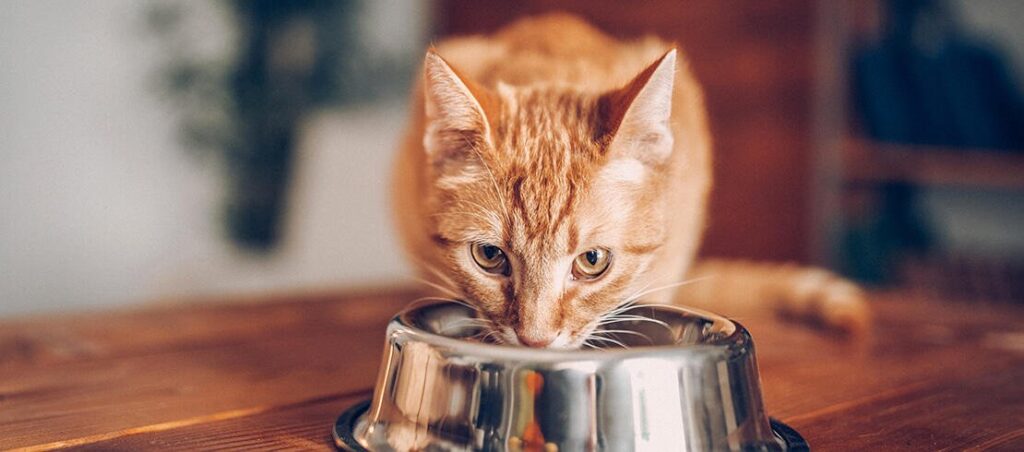
As a cat owner, you may have noticed your pet cat meowing while chowing down on their food. While it can be adorable to witness, others may not find it so enjoyable. This constant meowing or crying has various meanings and could potentially be a sign of an underlying issue. This article will discuss why your cat meows while eating and what its trying to communicate with you.
Why Your Cat Meows While Eating
There are seven possible reasons for this why your cat meows while eating, ranging from minor to more serious issues. It’s important to understand what your cat is trying to tell you through their meows, so you can take the appropriate steps to help them out.
1. Hunger
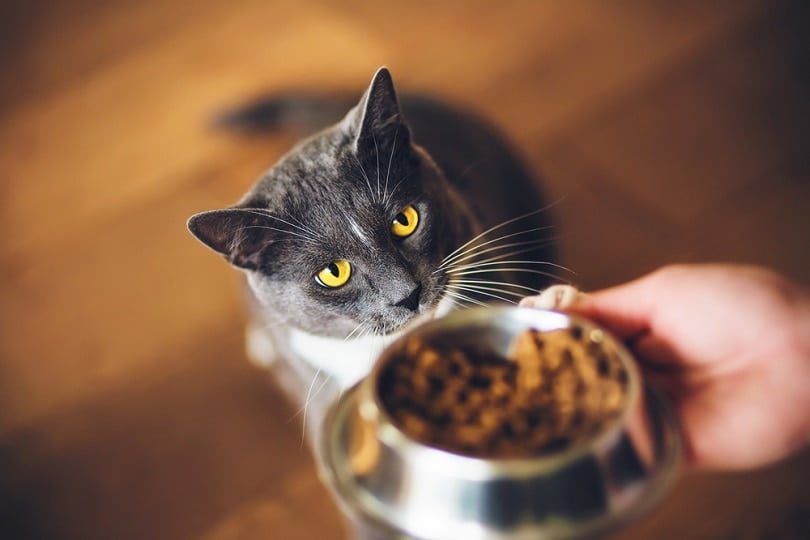
Cats are known to be vocal animals, and if they are meowing while eating, it could be an indication of hunger. Cats meow to communicate with their owners, and if your cat is meowing while eating, they might be trying to tell you that they need more food.
Irregular feeding schedules or not providing enough food could be a reason why your cat is meowing while eating. Cats have small stomachs, and they need to eat small, frequent meals throughout the day. If your cat is not getting enough food, they may feel hungry and meow to let you know that they need more.
It is essential to find the right balance when it comes to feeding your cat. Overfeeding can lead to obesity, which can cause a range of health problems, including diabetes, heart disease, and arthritis. On the other hand, underfeeding can leave your cat feeling hungry and meowing for food.
To prevent hunger meows, it is important to establish a regular feeding schedule for your cat. Offer your cat small, frequent meals throughout the day, and monitor their weight to ensure that they are not over or underfed. If you are unsure how much to feed your cat, consult with your veterinarian for advice on the appropriate portion sizes for your cat’s age, weight, and activity level.
2. Attention-seeking behavior
Another reason why your cat may be meowing while eating is attention-seeking behavior. Cats love attention, and they often seek it out from their owners. If your cat is meowing while eating, it could be a sign that they want your attention.
This behavior could be because your cat is bored or lonely, and they are trying to engage with you. It could also be a way for them to assert their dominance and show that they are in charge.
To address this behavior, try spending more time with your cat and engaging in interactive playtime. Cats love to play, and it’s an excellent way to bond with your feline friend. You can use toys, such as feather wands or balls, to play with your cat and provide them with the attention they crave.
You can also try feeding your cat in a different location or at a different time to break their routine and prevent attention-seeking behavior. If your cat is meowing for attention, try to avoid reinforcing this behavior by ignoring them when they meow and only giving them attention when they are quiet.
3. Health issues
Another possible reason why your cat might meow while eating is due to underlying health issues. Cats may experience dental problems, mouth ulcers, or digestive issues that can make eating painful or uncomfortable. Meowing while eating could be a way for them to express their discomfort.
If your cat’s meowing while eating is accompanied by other symptoms such as difficulty eating, vomiting, or weight loss, it’s important to take them to the vet for a check-up. Your vet can perform a thorough examination and run diagnostic tests to determine the underlying cause of your cat’s symptoms.
Dental issues, such as periodontal disease or broken teeth, can cause pain and discomfort while eating. Your vet may recommend dental treatment or a change in diet to address these issues. Mouth ulcers or sores can also be a sign of an underlying health issue, such as an infection or an autoimmune disease.
Digestive issues, such as gastroenteritis or inflammatory bowel disease, can cause discomfort or pain while eating. Your vet may recommend a change in diet, medication, or other treatment options to address these issues.
4. Discomfort or pain
Cats are creatures of habit, and they can be quite vocal about their routines. However, if you notice that your cat is meowing while eating more than usual or seems to be in pain, it could be a sign that they are experiencing discomfort or pain. There are many possible reasons why your cat may be meowing while eating, and it’s important to identify the underlying cause.
Dental problems such as gingivitis, broken teeth, or abscesses can make eating painful and uncomfortable for your cat. If your cat is meowing while eating and avoiding hard foods or seems to be chewing on one side of their mouth, it may be a sign of dental issues.
Another possible cause of discomfort or pain while eating is digestive problems. Cats can experience digestive issues such as constipation, diarrhea, or inflammatory bowel disease that can cause discomfort while eating. If your cat’s meowing is accompanied by other symptoms like vomiting or diarrhea, it’s important to take them to the vet for an evaluation.
5. Anxiety or stress
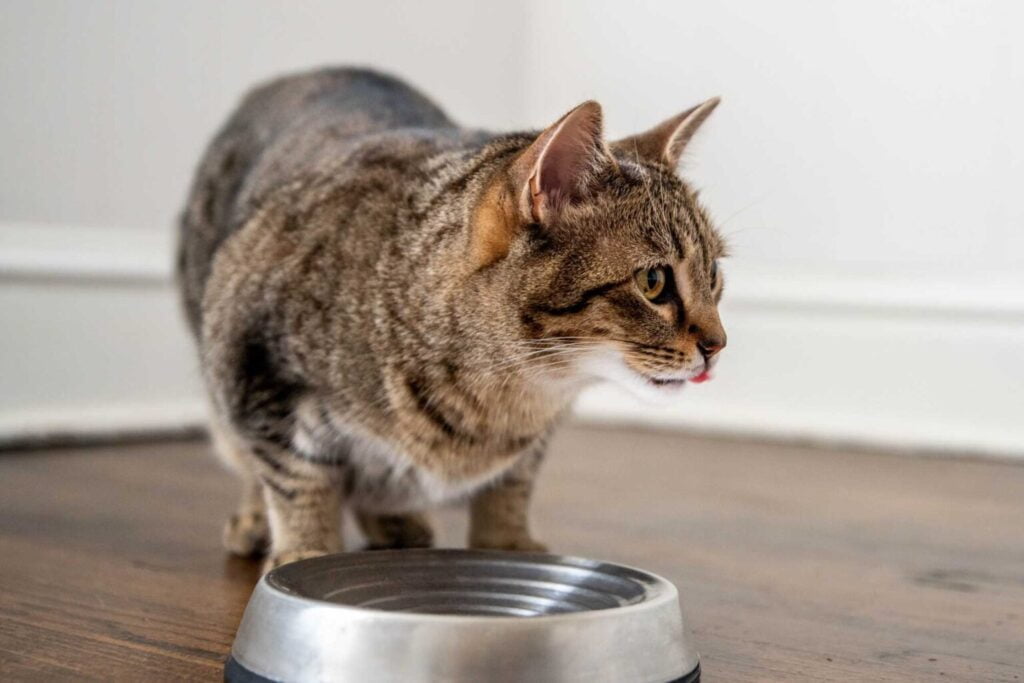
Cats are creatures of habit and thrive on routine, so any changes in their environment or daily routine can cause them anxiety or stress. If your cat is meowing while eating, it may be a sign that they are feeling anxious or stressed. This behavior can be triggered by a variety of factors, such as changes in the household, the introduction of new pets, or even a change in their feeding schedule.
It’s important to observe your cat’s behavior and try to identify any potential triggers that may be causing their anxiety or stress. Once you’ve identified the cause, you can take steps to address the behavior. One way to help reduce your cat’s anxiety while eating is to maintain a consistent feeding routine. Feed your cat at the same time every day and in the same location. This can help your cat feel more comfortable and secure during mealtime.
Additionally, providing a safe and comfortable eating space can also help reduce your cat’s anxiety while eating. Make sure that your cat has a quiet and comfortable place to eat, away from any potential stressors or distractions. Consider placing their food in a private area, such as a separate room or a quiet corner of the house.
6. Noisy environment
A noisy environment can cause a lot of stress to cats, and this can lead to unusual behaviors such as meowing while eating. It’s essential to understand that cats have more sensitive hearing than humans, and loud sounds that might seem insignificant to us can be overwhelming to them. This can cause anxiety and make them feel unsafe, leading to meowing while eating.
If you notice that your cat is meowing while eating, try to identify any loud sounds or disturbances in the environment that could be causing the behavior. For example, if you have construction work happening in your home or a noisy household with children and pets, this could be causing anxiety for your cat. Try to feed your cat in a quieter area of your home, away from any noise distractions.
7. Behavioral issues
Cats are intelligent animals, and they can develop certain behaviors that are difficult to break. Meowing while eating can be a learned behavior that requires training to address. If your cat meows while eating, it’s important to identify the underlying cause and try to address it. However, if the behavior is due to a learned habit, it may take some time and patience to correct.
Training your cat to eat in a designated area or at a specific time can be helpful in addressing this behavior. This will establish a routine for your cat and help them understand when it’s time to eat. You can also use positive reinforcement techniques to encourage good behavior. For example, you can give your cat a treat or praise them when they eat without meowing.
It’s important to remember that punishment is not an effective way to address behavioral issues in cats. This can actually make the behavior worse and lead to other behavioral problems. Instead, focus on positive reinforcement and be patient with your cat as they learn new behaviors.
Conclusion
In conclusion, understanding why your cat meows while eating can help you address any underlying issues and create a more harmonious mealtime experience for both you and your feline companion. From hunger to behavioral issues, there are many possible reasons for this behavior. By paying attention to your cat’s cues and working with them to find solutions, you can create a positive and stress-free eating environment.
Remember, meowing while eating is just one way that cats communicate with their humans, so don’t be afraid to listen and respond to their needs. With a little patience and understanding, you can help your cat feel happy, healthy, and loved.
